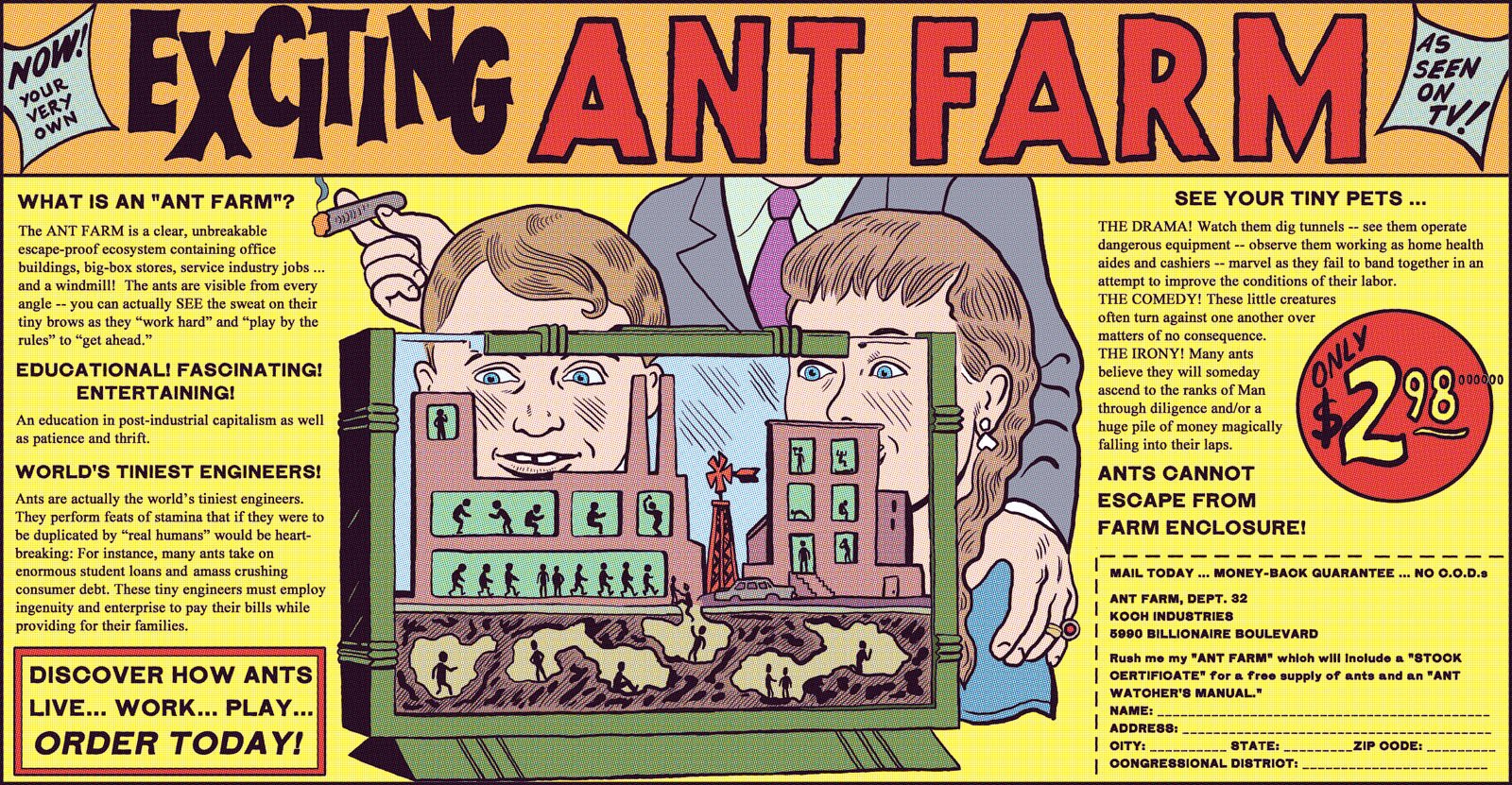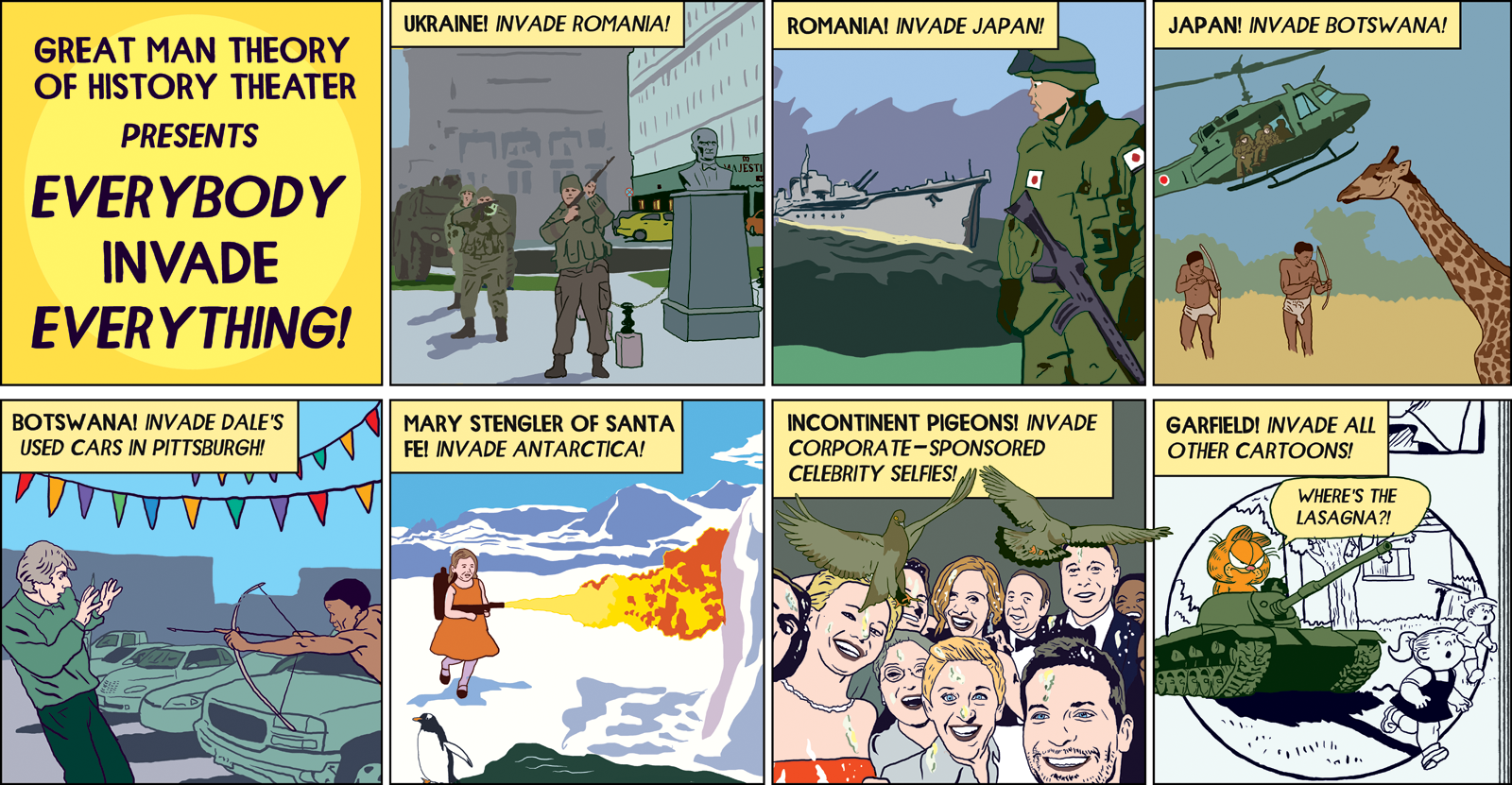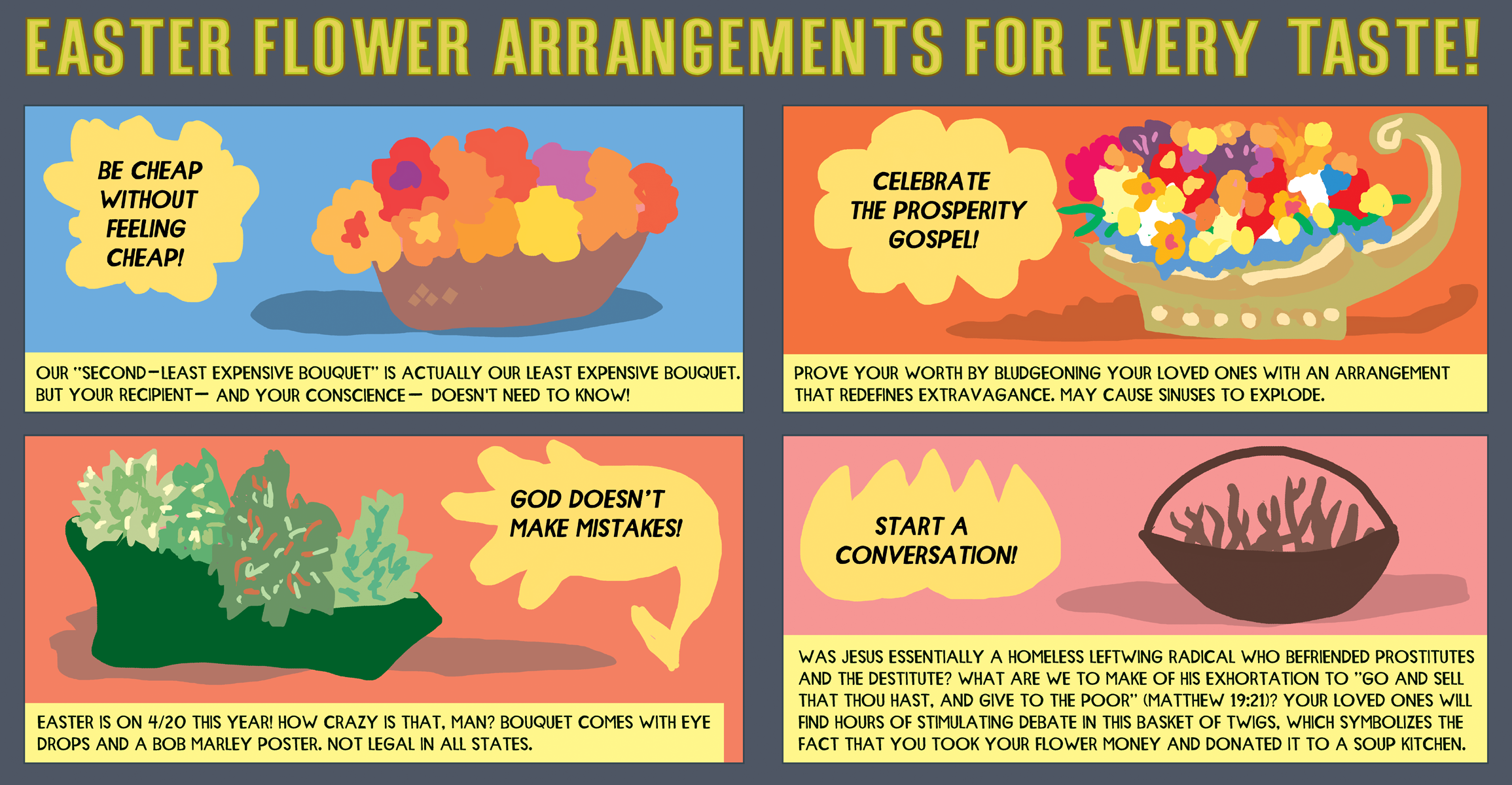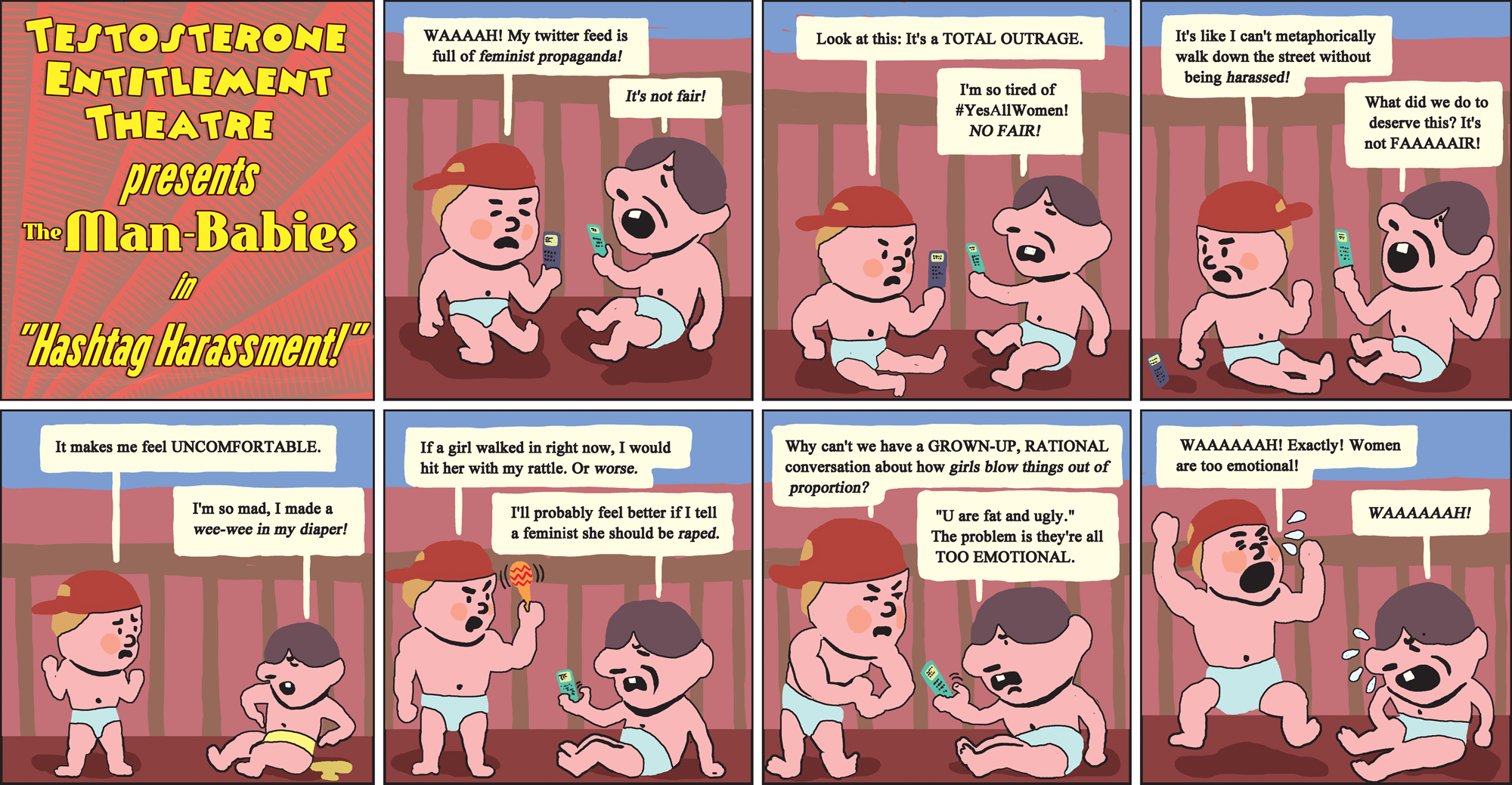
Just under a year ago, I started a new gig that I was cautiously excited about: creating editorial comics for the Week in Review section of The New York Times. David Rees was going to write them and I was going to draw them. This seemed like an ideal partnership; David (creator of the satiric comic Get Your War On) has a great skill for walking the fine line between irony and sincerity, and is extremely funny as well. We both wanted to try to do new things with the political strip format, and bring metahumor to the Times.
Already, though, things were not as we’d been promised. The Times had approached David and then myself in April of 2013. After approving us, they told us their master plan: Brian McFadden, the resident comic artist, would be replaced by myself and David alternating with Lisa Hanawalt. This would be a part of the exciting revitalization of the Week in Review section. To that end, they told us to wait while their redesign proceeded.
By September, the redesign seemed to be finished; but the editor in charge decided that something as exciting as this new comic rotation couldn’t be unveiled in a dull month like September. Better to wait until… January! when it could be announced to the world with the appropriate fanfare and excitement.
So we waited seven months in all. And on January 20th, David & I created our first strip for the Times… which was printed with no fanfare or announcement or anything; we were simply dumped into an alternating slot with McFadden, because by then Lisa was simply too busy (drawing Bojack Horseman). The brilliant strategy of waiting all that time had backfired, because in fact it was pointlessly stupid.
Then there was the money. The New York Times– get this- refused to come up from the fee for one artist, which we were to split. We finally got them to come up a little, but only a little. These strips are done in a very short time period- basically between Wednesday night and Friday morning, and I stayed up all night for a couple fo them. We were going to be making very little money, but still, it was an opportunity to do good work, maybe make some statements on serious issues and have them be seen by people. And the Times still stands for something in peoples’s minds, some kind of editorial quality.
Of course, it didn’t work out at all; their nitpicking, antiquated style of editing got more oppressive until they were killing entire strips. And it’s quite clear they were refusing to print them because they didn’t understand them. It was like being edited by hobbits.
The first few went through fairly smoothly; David pays close attention to the news, and the art director mentioned approvingly that she was glad he was tackling issues that the paper wasn’t covering otherwise. The one thing that bothered me was: we would present the script, the editors would make corrections, I’d create a finish. Then, after I’d handed it in, I’d get back a complete different set of corrections, mostly concerned with their antiquated style guide. The Times puts periods in “IRS,” for instance, even though the IRS themselves do not. They also changed the wording of Donald Rumsfeld’s letter to the IRS when we quoted it directly; that seemed wrong to me. And that they couldn’t do all the corrections at once, before I’d done the work, felt to me like laziness and a lack of coordination which ended with me doing unnecessary work at the last minute.
They did start reading the script more closely, though, after our fifth strip. The script mentioned the cartoon character Garfield and tribesmen in native costume in Botswana, so I was less than sympathetic when they were surprised when the art was turned in. “We have to check with our lawyers if we can use Garfield,” the AD said, and “the tribesmen in Botswana are making people uncomfortable.” Soon came the word that the lawyer had said Garfield was okay (luckily they had asked one who understood the first amendment). I hope they would also drop the tribesmen issue, but no. They insisted I make it a different country, and have them fully clothed. I thought about it for maybe five seconds, and then I said something I’d learned to say after a lot of bad experiences with illustrations and comics that turned out mediocre because of meddling editors who thought they were smarter at what I do then I am. I said “I’m not comfortable with that.” And they… backed down. Okay, we’ll print it the way it is.

I thought we’d won a small, but important victory. Of course, I was kidding myself. Two strips went by and then it was Easter; David wrote a script parodying floral bouquet ads. It showed several extravagant bouquets before showing a basket with twigs in it, suggesting that maybe the real spirit of Jesus would be served by saving the money spent on bouquets and giving it to a homeless shelter. It was David at his best: sharp, moral, funny & brilliant. (I’ve done a rough of it to show you here).
They hated it. “The editor is asking why are we making fun of religion” came the reply. I couldn’t believe this, and still can’t; it’s the response of someone who can’t read. David was doing the opposite of making fun of religion; he was in fact underlining one of its central tenets, the concept of charity. He felt really strongly about it, and even managed to talk with one fo the editors to make his case. But no amount of arguing would dissuade them. We had to come up with another strip in a hurry.

A sketched-out version of the unpublished strip.
The next strip went through with no difficulty, and then David wrote a strip about male bullying online. That week, the hashtag #yesallwomen had taken over Twitter, following a misogynist’s killing spree in California. The reaction to this was a torrent of abuse from men and boys towards women- and this was before Gamergate, which really took it to another level. As always, David’s strip on the subject was right on. His script had a pair of baby-men (wearing diapers) talking about trolling and threatening women online. I was excited, because I knew this was one that would attract attention, and make a point that deserved to be made. Incredibly, the Times wouldn’t touch it. “So I floated this by the editors, and they all feel that this news story is just too sensitive to be prodded at in a humorous way,” was the way the substitute AD put it.
This was when I had had enough. Too sensitive to be prodded at in a humorous way? Why had they hired us? What did they think we were supposed to be doing? David was busy at that point doing his TV series for National Geographic, so I told the AD that I was not happy with the Times‘s behavior, that we would not be giving them a substitute strip for that week, and then I created a rough version of the strip from David’s script and put it online, with a full explanation of how the Times wouldn’t print it. It got more attention than anything else we’d done for them.

A sketched-out version of the unpublished strip.
We did one more strip after that and then, big surprise, they fired us. But once the Times had made it clear that we were not allowed to offend anyone, or handle any but the safest material, it was all over for us anyway. For me, as a cartoonist, it was another depressing reminder of how bad things have gotten in the print world for people who do what I do. David had a TV show. Lisa had a TV show. I was working in print and I felt like a real loser for it.
I couldn’t help but think of all this again this week as the images from Paris appeared online. Cartoonists had given their lives for the freedom of speech their work represented. It still means something over there.
_______
________
For all HU posts on
Posted in Blog, Featured, Satire and Charlie Hebdo Roundtable, Top Featured
|
Tagged censorship, David Rees, editorial cartoons, Get Your War On, Michael Kupperman, New York Times, NYT, Satire and Charlie Hebdo Roundtable
